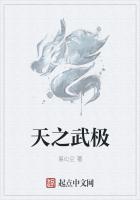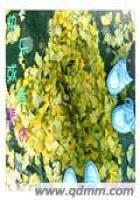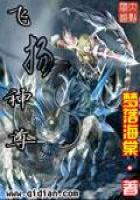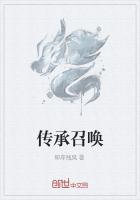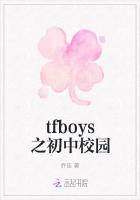James J. Daly, S.J.
ON THE ROAD
Mid-August in Vienna, the year 1567: when Shakespeare was still a little boy; twenty years before Philip II fitted out the Spanish Armada;forty years before the first English colony settled in America. The sun had just well risen, the gates of Vienna had been opened but a few hours. Through the great western gate, which cast its long shadow on the road to Augsburg, came a strange-looking boy.
He lacked but a month or two of seventeen years, was some five feet two or three inches in height, had an oval face of remarkable beauty and liveliness, jet black hair, and eyes in which merriment dwelt as in its home. He was dressed as became a noble of the time, and in apparel of unusual splendor and costliness; plumed bonnet, slashed velvet doublet, tight silken hose, jeweled dagger at his girdle.
But it was odd to see so brilliant a figure on foot in the dusty highway;still more odd that be carried a rough bundle slung on a staff over his and that, peasant fashion, he munched at a loaf of bread as he trudged the road.
By no means stalwart-looking, still he swung along with an easy stride and a confident strength that many a stouter man might envy. He was bound for Augsburg, 400 miles to the west, and he set himself thirty miles a day as his rate of travel.
He wore splendid clothes, because he was Stanislaus, the son of John Kostka, Lord of Kostkov, Senator, and Castellan of Zakroczym in the Duchy of Mazovia, Poland. He ate his rough breakfast, like a peasant, on the road, because he had just been to Mass and received Holy Communion at the Jesuit church in Vienna. He carried a bundle on his staff, because he laughed merrily at fine clothes and had in the bundle a coarse tunic and a stout pair of brogans, which he meant to put on as soon as he got well out of the city. And his face and his eyes shone with joy, because he loved God most wonderfully and was as happy a boy as ever moved through this dull world.
Every age has its adventurers: men who for fame, or for place, or for money, cross wide seas, fight brave battles, endure great hardships. The age in which Stanislaus lived was filled with them. All the world reads with delight the story of such men. And every decent boy who reads feels himself, if only for the moment, their fellow in spirit, eager to do what they did and as bravely as they did.
But was there ever adventure finer than this, ever spirit more gayly daring? Stanislaus Kostka, son of a noble house, a boy in years, starting without a copper in his pocket to cross half of Europe afoot! And for what? Not to have men say what a brave chap he was; not to win a name, or rank,or money: but because God would be pleased by his doing it, because God called him to do something which he could not do in Vienna.
He felt he had a vocation to be a Jesuit. He knew his father would not consent. He took six months to think it over, to pray for light, to make sure it was no mere whim or fancy of his own, but the very voice of God. And when he felt sure, he left a letter for his brother Paul and his tutor, Bilinski, with whom he had been studying in Vienna; he gave his money to a couple of beggars; he said, "If God wants me to do this, He'll furnish the means";he put on his best attire, tied up a rough suit in a cloth, took a stout staff in his hand, and with God's blessing upon him and His Eucharistic Presence in his heart, stepped out cheerfully on a journey that would stagger most men.
That is the stuff of which heroes are made. If Stanislaus had done this for the glory of the world, we should have his praises in our histories, we should have stories woven about him, the whole world would cry "Bravo!"But he did it for God, and the world cannot understand him at all: the world is silent.
An hour or so of that steady, tireless stride carried him well away from Vienna. He slipped off his velvet and silk, put on his coarse tunic - a shirt-like garment that came below his knees - girded himself with a bit of rope, tied his stout shoes on his feet, and took the road again. There were folk aplenty journeying from the countryside to Vienna in the early morning. Stanislaus picked out one of the poorest-looking peasants and handed him the gala dress he had just taken off.
"I can't carry these with me, friend," he said. "Won't you please take them? I have no use for them, and perhaps you can sell them in the city."
And he was gone before the peasant, gaping in wonder at the rich garments and dagger in his hands, could much more than catch a glimpse of that bright face and those laughing eyes.
He tramped all day, and made his thirty miles. When he was hungry, he asked some one he met for food. It is not likely that any one would refuse the smiling, handsome boy, from whose face innocence simply shone. But if any one had refused him, it would not have annoyed Stanislaus. His good humor came from heaven, as well as from his own cheery soul - and you cannot rebuff that kind of good humor.
Night came down at last, and he was tired out. He came to an inn and asked for shelter.
"I have no money," he told the landlord, smiling, "and I have no claim upon you. Will you take me in?"
The landlord looked at him shrewdly a little, then said with respect:
"But what is your grace doing in such a garb?"
Stanislaus thought for a moment that he was recognized; but he put on a bold front, and laughed as he said:
"I am not 'your grace. I am what you see me, and I have a long journey to make."
In those days it was not unusual for even nobles to go, roughly clad, upon pilgrimages of devotion. That Stanislaus was a noble, the landlord was quite certain. That he might be engaged on some such pious business, was possible. But who ever heard of a mere boy going upon pilgrimage?
The whole affair puzzled the landlord more than a little. However, the face of the boy reassured him. At least there could be no evil behind that frank, brave countenance. So he shook his head, saying:
"I do not understand. But come in. You are welcome."
He gave Stanislaus his supper and a bed to sleep in.
"You shall not be the poorer for this," said Stanislaus, as he thanked him. "You know God makes it up to us for even a cup of cold water given in His name."
And as the boy spoke, the landlord saw his face glow when he spoke of God and he was very glad at heart that he had given shelter and food, to this strange boy.
Stanislaus slept soundly. But he was up with the sun, washed and dressed quickly, and went to thank his host again before setting out.
"But you will have something to eat before you go?" cried the man, as Stanislaus stood before him, staff in hand, ready for the road.
"It is good of you to offer it," the boy answered. "But perhaps I shall find a church before long, and I must go fasting to Holy Communion."
Then the landlord marvelled again, for at that period even good people did not go very often to Holy Communion, especially when they were traveling hard, as Stanislaus evidently was. And his admiration and liking grew for this boy with the merry face and the heart so near heaven.
"At least," he said, "you must take something with you for the way."
And that Stanislaus did not refuse, but accepted gratefully, and soparted from the kind landlord, leaving him gazing in the doorway with wonder in his eyes.
His legs were a bit stiff and sore this second day. But the first few miles wore that off, and he swung on his way as bravely and gayly as before.






